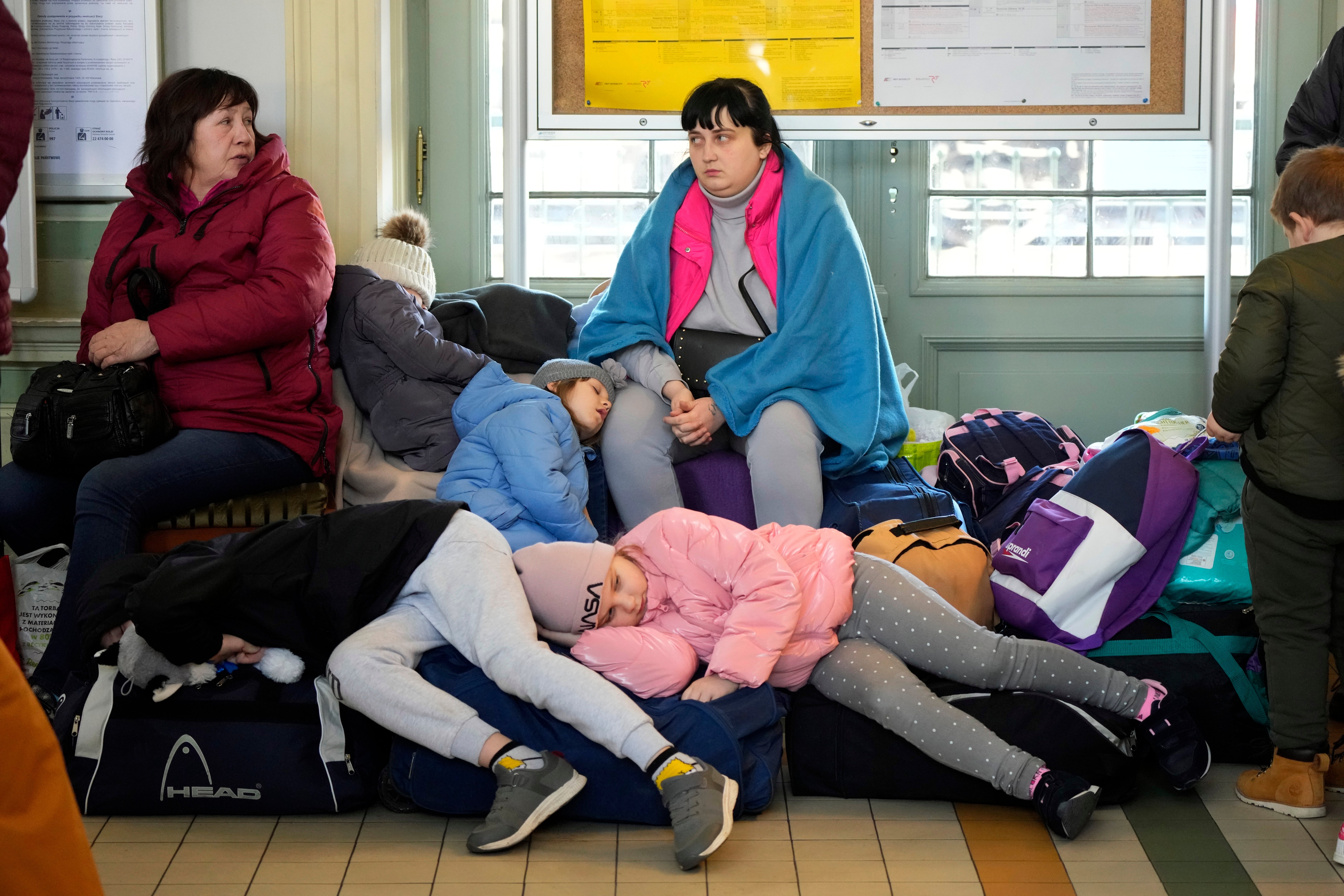UK’s visa schemes ‘creating and heightening’ trafficking and exploitation risks
More than 100 experts have highlighted the “troubling implications” of the UK’s visa-based response.

The UK’s visa schemes for Ukrainian refugees are “lacking in clarity, resourcing and accountability” and are heightening the risk of trafficking and exploitation, according to a report.
More than 100 experts have highlighted the “troubling implications” of the UK’s visa-based response, saying they are struggling to make sense of the “chaotic, fragmented and confusing” system.
In a report produced by experts at UCL for the Independent Anti-Slavery Commissioner, Dame Sara Thornton, the visa requirement is widely regarded as creating and heightening risks of human trafficking and exploitation.
There was clear consensus among experts from across different backgrounds that new risks specific to this war are interacting with existing systemic issues in the UK, putting many refugees from Ukraine at heightened risk of human trafficking and exploitation
This compares to EU countries’ more open responses which were seen as a “major source of resilience” against such threats.
The UK’s “hostile environment” is also creating a “difficult climate” in which to respond to the crisis, they added.
The report details issues raised during a round table of experts from governmental bodies, healthcare, legal groups, law enforcement and academics.
Numerous concerns were raised about the Homes for Ukraine scheme, with experts worried both about the “deliberately predatory hosts” and about conditions becoming increasingly exploitative over time.
They identified the potential for domestic servitude, with unclear Government guidance heightening the risk of exploitative placements.
And they warned that councils are likely to struggle to house refugees who need accommodation because their relatives cannot house them or their placement with a sponsor breaks down.
One respondent, from an NGO, said: “Six months is a long time to sign up to host somebody and as far as we can work out there’s no back-up for what happens if it goes wrong, although on paper there is.
“But in reality there is a housing shortage, as we probably all know, and there’s already thousands and thousands of Afghans waiting for housing in hotels, so what happens if a hosting placement goes wrong, where are the Ukrainian people going to go?”
They also said there is a shortage of official information for refugees, their hosts and councils, warning that a high volume of “decentralised and fragmented material and initiatives” could cause confusion and hinder refugees’ access to support.
In addition to women and children, groups particularly at risk of exploitation include separated and unaccompanied minors, older people, Roma and other minority groups, and international students.
One participant, a barrister, said: “I’m hearing from the police who are going into the brothels that they are very concerned that there’s an increase in the number of Ukrainian females … I suspect that those females are compelled into sex work rather than being more consensual sex workers, and I’m concerned about the lack of our ability from a policing and disruption and safeguarding perspective to intervene and protect.”
Lead author Dr Ella Cockbain, from UCL’s Department of Security & Crime Science, said: “There was clear consensus among experts from across different backgrounds that new risks specific to this war are interacting with existing systemic issues in the UK, putting many refugees from Ukraine at heightened risk of human trafficking and exploitation – both on the way to the UK and once here.”
She added: “Simply warning people about human trafficking and modern slavery is not enough, they need to be given safer, better options and access to vital support if things go wrong.”
What we must do now is put in place systematic prevention and protection measures to ensure the risks of trafficking and exploitation do not become a reality
Dame Sara said the responses to the Homes for Ukraine scheme have shown how willing the public is to support refugees.
She said: “Thousands of individuals, organisations and businesses have offered shelter, support and job opportunities.
“What we must do now is put in place systematic prevention and protection measures to ensure the risks of trafficking and exploitation do not become a reality.”
Among the report’s 25 recommendations is a call for the Home Office to waive the visa requirement, improve access to support for non-Ukrainians fleeing the country, and publish regular data on how many separated and unaccompanied children are arriving in the UK.
It should also ensure councils get £10,500 per refugee arriving under the Family scheme, and these refugees should get a £200 payment when they arrive, as is the case for arrivals under the Sponsorship scheme.
The Department for Levelling Up, Housing and Communities, which has responsibility for the Homes for Ukraine sponsorship scheme, should provide information clarifying expectations around domestic chores.
And it should work with councils to make clear plans for how refugees will be supported with housing if placements fall through or relatives cannot house them.
A Government spokesperson said: “In response to Putin’s barbaric invasion we launched one of the fastest and biggest visa schemes in UK history. 86,000 visas have been granted with over 27,000 Ukrainians arriving safely in the UK.
“Thanks to changes we made to streamline the system, thousands of visas are being granted every day, but it is right that security checks are conducted on both applicants and sponsors to make sure Ukrainians fleeing the war and sponsors are safeguarded.
“Under the Homes for Ukraine scheme, councils must make at least one in-person visit to a sponsor’s property and following guests arrival, they have a duty to ensure the guest is safe and well.”
Bookmark popover
Removed from bookmarks